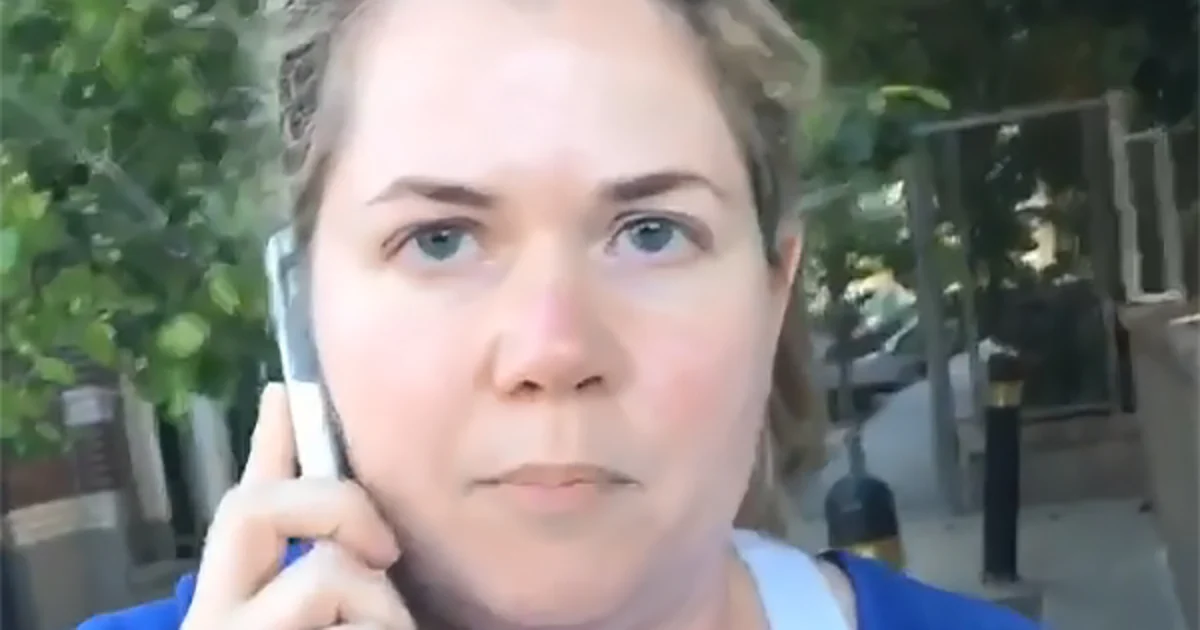Karens
Unmasking ‘Permit Patty’: A Deep Dive Into The Viral Incident

“Permit Patty”: Karen’s Threatening Encounter
In viral history, “Permit Patty” became associated with San Francisco cannabis industry owner Alison Ettel. She gained fame by threatening an eight-year-old black child selling water without permission. Ettel’s video threatening to contact the police went viral, garnering ridicule and the moniker “Permit Patty” on social media.
Ettel’s ire fell on the innocent girl selling water. Ettel took things into her own hands after becoming angry with the girl and her mother’s stew, causing a reaction. Similar examples of “Karens,” who used 911 calls to harass persons of race, were immediately cited.
Local Ettel cannabis retailers cut relations when the video went viral. The quick reaction showed how social media can hold people responsible. Racial profiling and excessive escalation in minor situations were also highlighted in the program.
“Permit Patty” Resigns
“Permit Patty” had a swift aftermath. The video went viral, and local marijuana merchants who sold Ettel’s goods cut ties with her within hours. Business leaders’ quick reaction showed a rising intolerance for racially inappropriate conduct, mainly when recorded and posted on social media.
Ettel’s organization, TreatWell Health, acted quickly due to the gravity of the issue. On Tuesday, Ettel quit as a business founder “effective immediately.” A crisis manager was hired. TreatWell Health apologized for the event and said they parted ways with Ettel for the sake of their patients.
The list of social media backlash victims continues to increase with Ettel’s departure. Like previous examples, people were swiftly in trouble for racially motivated actions recorded on tape. Ettel’s swift punishment shows how responsibility has changed in the digital era.
Social Media Reaction To “Karens”
The “Permit Patty” event is one of several high-profile examples highlighting discrimination and its fast effects. This has sparked a discussion about how social media holds individuals responsible. “Karens” and other viral figures demonstrate the power of internet activism and collective fury.
In the age of quick sharing and ubiquitous networking, situations like “Permit Patty” remind us that racial intolerance cannot go unnoticed. Social media users quickly recognized, critiqued, and demanded responsibility for this issue, showing the possibility for constructive change. The “Permit Patty” incident went viral and sparked talk about systemic challenges, community knowledge, and sensitivity.
Social Media Backlash And Karen Phenomenon: Growing Trend
An increasing number of people, especially women, participate in discriminatory conduct and suffer social media criticism, as in the “Permit Patty” incident. Such people, mainly white women, are called “Karen” for their entitled and belligerent conduct. Numerous online events showed privilege-based threats and harassment of persons of color, highlighting the issue.
Social media platforms allow individuals to reveal and denounce discrimination. The pace at which these instances develop online shows a yearning for justice and equality. Thus, “Permit Patty” and others like her are scrutinized, raising questions about how such conduct affects vulnerable populations.
The “Karen” phenomena highlight overarching privilege, entitlement, and racial prejudice concerns. Collectively reviewing these incidents may help society understand prejudiced behavior and create a more inclusive and empathic culture.
Read Also: San Fran Karen: Laface Skincare CEO Apologizes For Confrontation
Businesses Oppose Discrimination
The response of local businesses selling Ettel’s goods shows an increasing trend of firms separating themselves from problematic figures. Corporate organizations realize that public opinion affects their brand image and take bold steps to show their commitment to diversity, equality, and inclusion.
TreatWell Health’s quick acceptance of Ettel’s resignation and severance highlights corporate accountability. The company’s apology and focus on patient care reflect changing corporate expectations to address prejudice quickly and openly.
This business approach sends a clear message to organizations facing similar circumstances that discrimination is unacceptable. Businesses are becoming more socially aware, and customers may hold them responsible for their relationships and ensure they encourage equality.
Legal Reform Advocacy From “Permit Patty” To Policy Change
The “Permit Patty” incident raises considerations regarding human conduct and legislative change to avoid discrimination. The instance is uncommon, but it highlights how municipal rules and licenses may be used to target underprivileged populations.
Advocates say legislative changes are needed to prevent licenses and laws from being used for discrimination. The event inspires advocates seeking legislation to protect people from undue surveillance and harassment based on ethnicity or socioeconomic position.
As the occurrence is discussed, the public may use this momentum to advocate for policy reforms. The “Permit Patty” incident may spur local and state rule revisions to avoid abuse and improve fairness and justice.
Discussing “Permit Patty” And Racism Internationally
Although “Permit Patty” happened in California, its impact on racism and prejudice was global. Global emphasis on racial incidents highlights bias and the need for a collective response.
Social Media Has Enhanced These Incidents, Enabling Worldwide Solidarity And Discussion. The Event Represents Society’s Fight Against Institutional Bias.
The global response to “Permit Patty” illustrates that similar incidents are international. People’s anger and calls for accountability demonstrate their solidarity against bigotry. The incident shows that combatting racism requires a global justice and equality movement.
Helping Victims Advocate
Post-” “Permit Patty” assistance for the kid and family has expanded. After the event, a supporter gave the family a financed Disneyland trip, demonstrating how community collaboration empowers underprivileged voices.
This narrative shift emphasizes helping prejudiced victims. People impacted by such actions may speak out. Oppressed people may overcome suffering and progress.
The event examines communal empowerment and support beyond individual performers. It supports programs that empower marginalized groups and make society more inclusive and equitable. The aftermath of “Permit Patty” argues for uplifting marginalized perspectives.












You must be logged in to post a comment Login